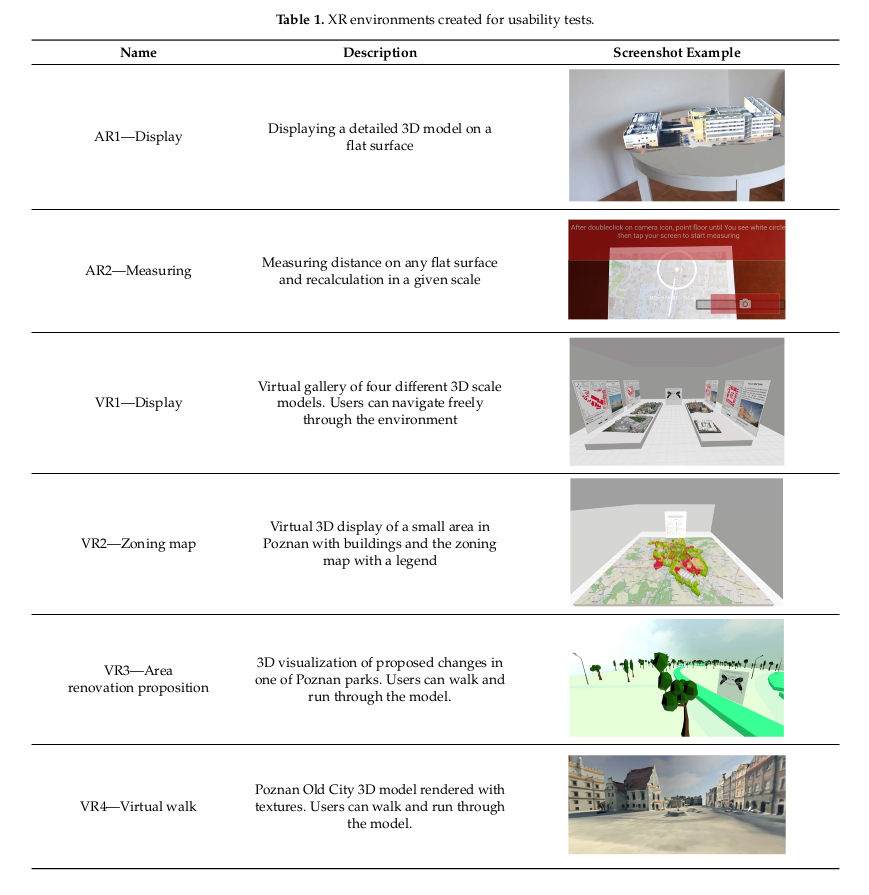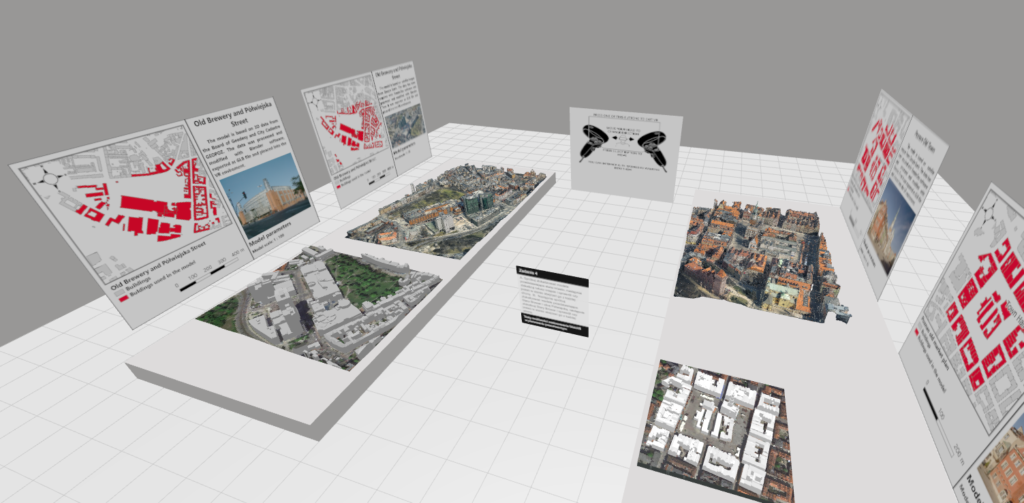New paper – Usability of WebXR Visualizations in Urban Planning
Thanks to Mateusz Orylski work we were able to publish the preliminary study on the usability of WebXR environments. We plan to expand this further in the project but it is already visible that this technology has potential when it comes to visualization for the public rather than within planning process. At least that is how our respondents saw this. Also, it is surprising how easy it was for our test users to navigate in environments that represented real life situations – like inspecting scale models.
You can access the full paper here on Research Gate or on the publishers website.
The abstract: Extended reality (XR) technology is increasingly often considered in practical applications related to urban planning and smart city management. It offers many advantages as a new visualization technique that gives its users access to places that are not available in material space and a unique perspective on existing objects. It can provide immersive multi-sensory experience that can induce emotional response in participatory planning. However, standard mode of implementation that relies on mobile phone applications and VR headsets has a disadvantage when it comes to availability and accessibility. Here we test the WebXR solution that can mitigate those problems. We have created six AR and VR environments that resembled common urban planning scenarios and conducted usability tests with people having planning and GIS background. Results indicate that WebXR can provide useful solution in urban planning when the interface and environment resemble common practices and situations encountered in real life. Environments that have introduced new digital affordances like AR measurements or semi-transparent walkable scale models were rated lower. Users evaluated presented environment as having high usability and expressed their positive attitude toward using XR in their professional practice mainly as a participatory and visualization tool.


